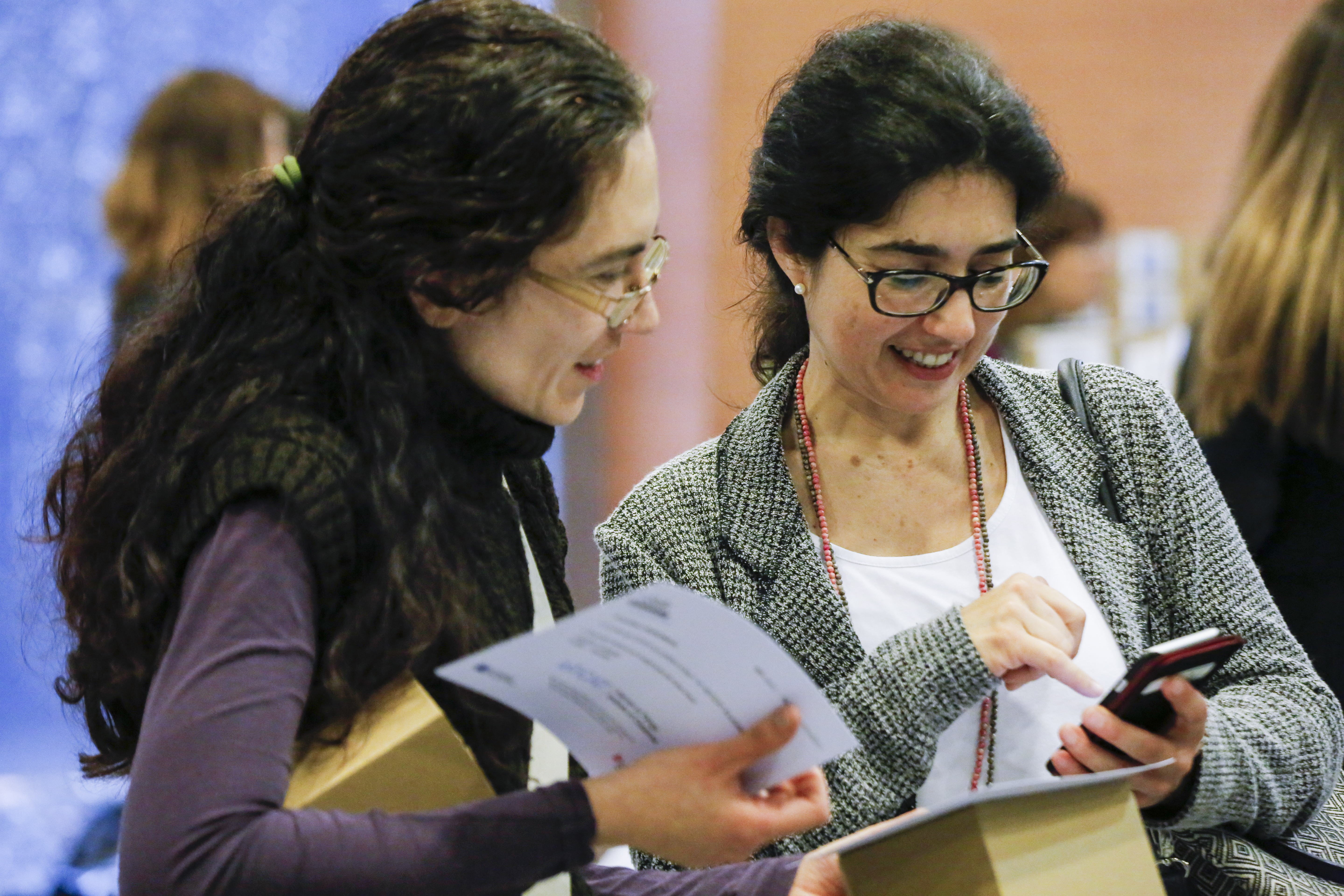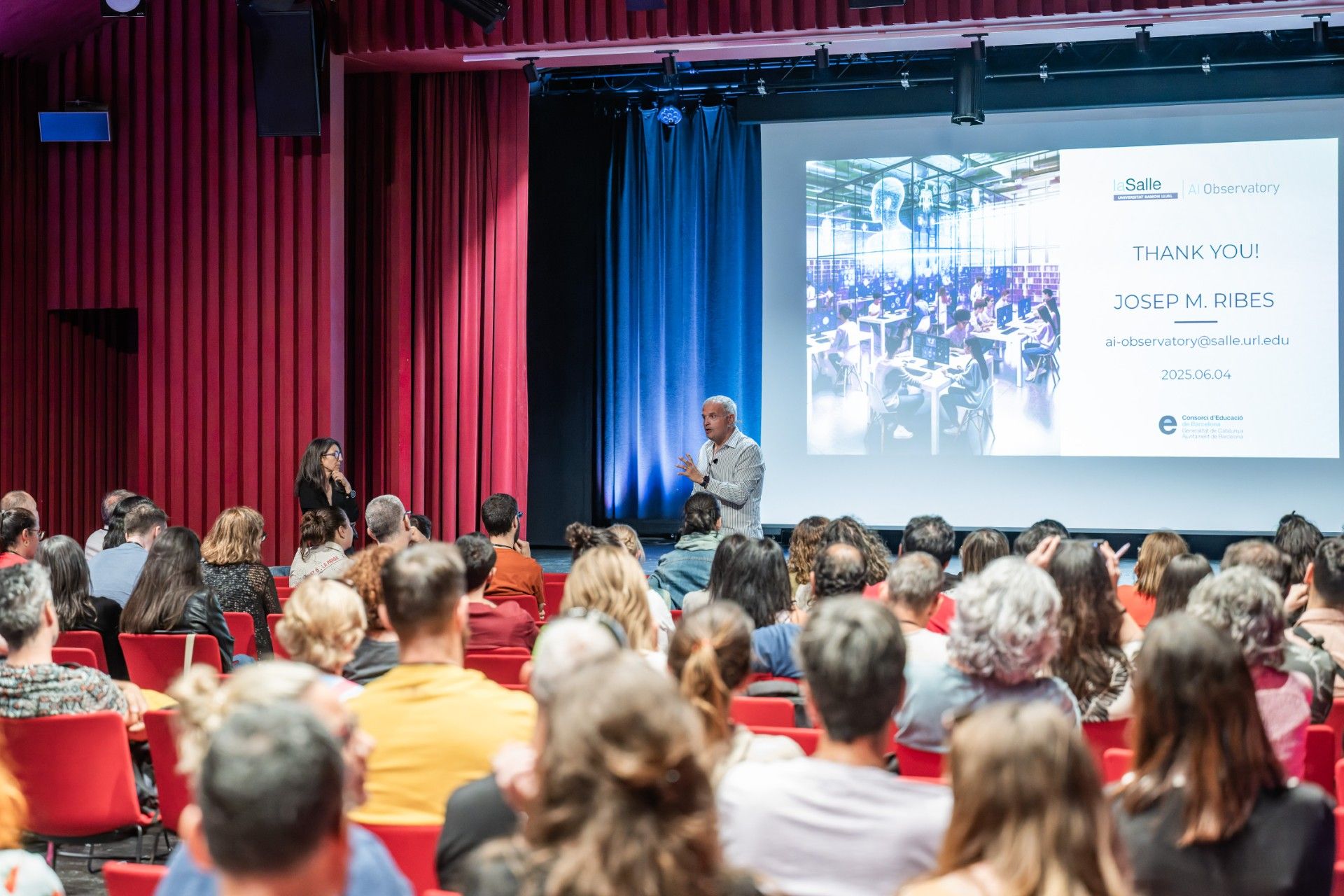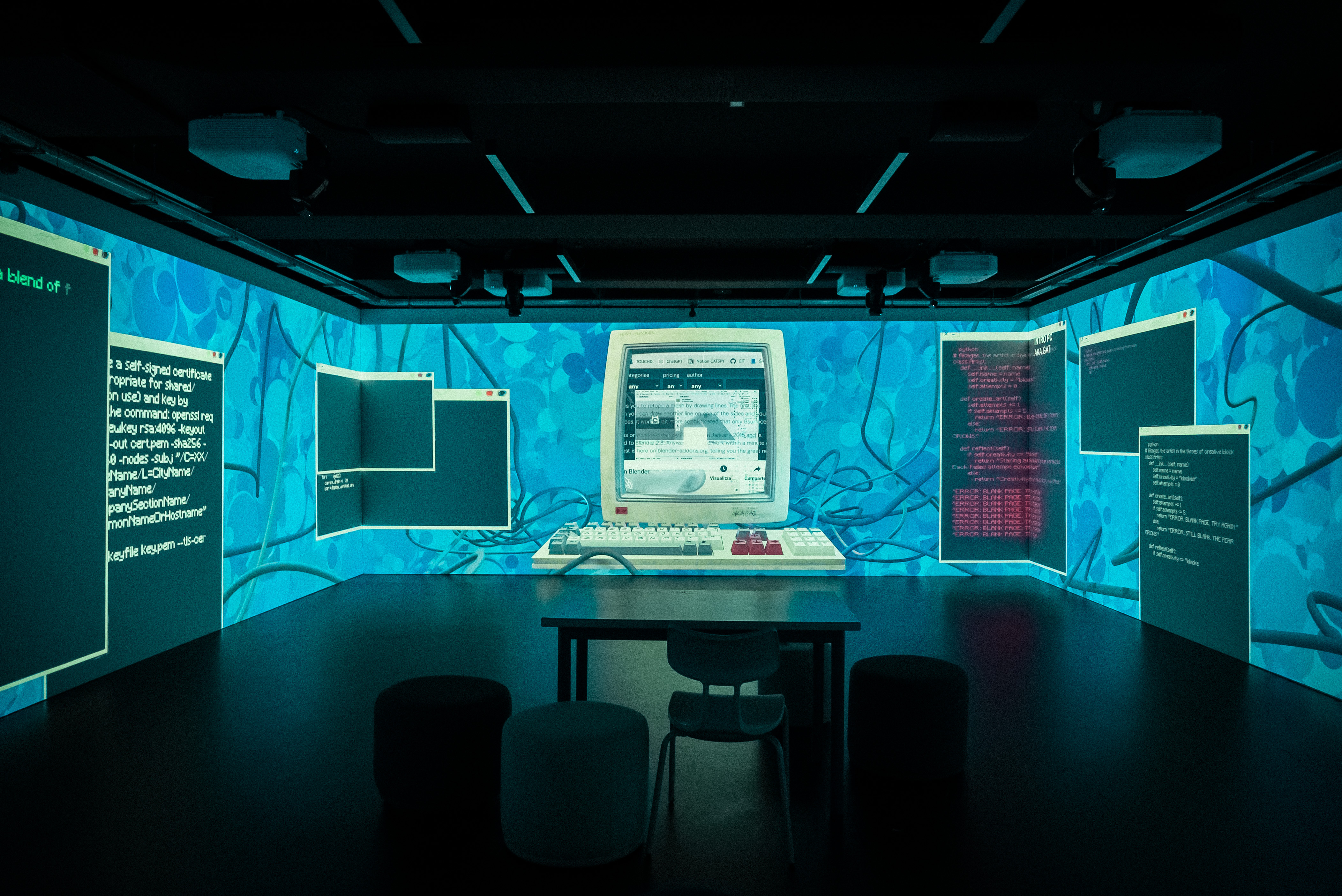In a context in which artificial intelligence (AI) is redefining industries, jobs, and ways of life, La Salle Campus Barcelona, founding member of Universitat Ramon Llull, consolidates it as a strategic pillar of all its activity, from teaching to research and knowledge transfer. Among the different initiatives and projects, the creation of the Artificial Intelligence Observatory stands out, established to analyze trends, deliver training, and offer consultancy services in the field of AI, along with the future LAIA Hub, which aims to become a strategic space for applied research and innovation in AI.
The beginnings of AI on campus, a look 30 years back
Since its foundation, La Salle-URL has been a pioneer in the field of engineering. Thus, it was one of the first to integrate artificial intelligence into curricula, research projects, and knowledge and technology transfer. With a track record of more than three decades, the commitment to AI has materialized in cross-disciplinary training –from bachelor’s degrees to doctorates–, competitive projects, and collaborations with companies and institutions. Currently, researchers work with AI in all kinds of projects and processes, promoting its responsible application for the benefit of society.
AI research at La Salle-URL has historically been active and diversified, with a progressive evolution toward practical application and social impact. Research teams from the Intelligent Systems Research Group (GRSI), the Electromagnetism and Communications Research Group (GRECO), and the Media Technologies Research Group (GTM) have worked in areas such as soft computing, machine learning, computational reasoning, data mining, and automatic speech recognition.
These lines and groups have contributed to scientific progress in fields such as personalized medicine, security, energy efficiency, or intelligent data management in urban environments. In the early years of AI on campus, full professors such as Josep Maria Garrell, former rector of Universitat Ramon Llull and current president of the European University Association (EUA), and Elisabet Golobardes, Vice-Rector for Academic Planning and Quality at Universitat Ramon Llull, played a role. “In the nineties, when we talked about AI at La Salle-URL, we seemed like aliens. But we were thrilled to be able to implement and evolve techniques such as case-based reasoning, genetic algorithms, or neural networks, to design systems to support medical diagnosis, among others. We thought about how to contribute to building a better society. It was something that fascinated me then and still fascinates me today. My academic, research, and social progress trajectory has been woven around artificial intelligence and data science for more than 30 years. Back then we were just a handful of people,” recalls Elisabet Golobardes.

Elisabet Golobardes in an archive image
The creation of the AI Observatory From the early days of AI at La Salle-URL to its current boom, many years have passed in which the use of this technology has already become part of the daily life of much of civil society, as recalled by Josep Maria Ribes, Director of the AI Observatory, in a recent intervention on the radio program Revolució 4.0 on Catalunya Ràdio: “It is true that three years ago this new generation of generative AI tools appeared, which allows you to use AI without being an expert, and that is new because this technology is being democratized.” He adds: “With AI we are seeing the first transformations, but there is still a lot to come.”
Given the speed at which technology advances, the differential advantage of having experience in this field, and the will to anticipate, research, and accompany the impact of artificial intelligence on socioeconomic and ethical development, La Salle-URL is driving the AI Observatory. “We noticed that everything is moving very fast and that there is a real need on campus, where we need an internal point of guidance to evolve curricula; and that externally companies and institutions approach us and find it useful that we are monitoring trends,” explains Josep Maria Ribes.
The observatory, which is currently working on various projects and training initiatives, aims to provide an informed perspective and criteria for the application of AI in different sectors, thus facilitating the integration of these technologies in an efficient and ethical way. Through research, analysis, and collaboration, the observatory seeks to empower professionals, companies, and academics with the tools needed to face the future challenges of the digital society.

Josep Maria Ribes impartint una conferència al Consorci d'Educació de Barcelona
The impact of AI on teaching and research
In the academic field, La Salle-URL has led the incorporation of official degrees in the discipline, such as the Degree in Artificial Intelligence and Data Science, taught entirely in English and with a global approach; and the official Master’s Degrees in Big Data, Data Science, and Telecommunications Engineering, which include AI and machine learning. Likewise, the doctoral program and cross-disciplinary initiatives in Philosophy, Digital Arts, and Management have also incorporated AI-related content. Similarly, the campus offers a Program in Management of Artificial Intelligence in the Enterprise, currently in its 5th year, and a portfolio of microcredentials that integrate AI into different disciplines and sectors and are taught through the Professional and Executive Education area.
This integration reinforces the transversal campus model in which technology, and especially AI, structures the educational activity. At the same time, work is underway to launch two new master’s degrees in the application of AI in the field of Business & Management. Maria Alsina, member of the AI Observatory team and Director of Political and Teaching Methodologies Deployment at La Salle-URL, analyzes the current context: “Artificial intelligence is revolutionizing teaching on our campus, reinforcing our methodological leadership and pioneering pedagogical lines, and accompanying our students to face today’s global challenges with excellence, positioning them at the forefront of technological advances and their impacts on society to become the professionals of the future.”
Meanwhile, AI is used and studied by La Salle-URL researchers through specific groups and lines that aim to transform AI research capabilities into initiatives with a real and positive impact on society. All the activity is channeled through the consolidated groups Human-Environment Research (HER) and Smart Society. In this regard, the campus reaffirms its commitment to innovation, research, transfer, and the training of professionals capable of facing global challenges, including those derived from the rise of artificial intelligence. In the words of Rosa Ma. Alsina, Director of Research and Innovation at La Salle-URL: "At La Salle-URL, artificial intelligence has been a driving force for interdisciplinary research and technology transfer over the last twenty years with real impact in areas such as health, sustainability and education, with applied AI, rooted in the territory and aimed at positively transforming society".

La sala immersiva de l'IASlab, el laboratori del campus pioner en recerca i creació artística
A look to the future: the first steps of the LAIA Hub
Looking toward the immediate future and linked to AI strategies being deployed worldwide, La Salle-URL is working on the launch of the La Salle Artificial Intelligence Hub (LAIA Hub), an emerging laboratory conceived as a strategic nucleus in Catalonia for applied research in artificial intelligence. “From the LAIA Hub we are driving a future in which artificial intelligence is a tool that generates justice and efficiency, and enhances human talent. All of this guided by the values, collective well-being, and social impact that have defined La Salle-URL’s mission since our origins,” concludes Rosa Ma. Alsina.
